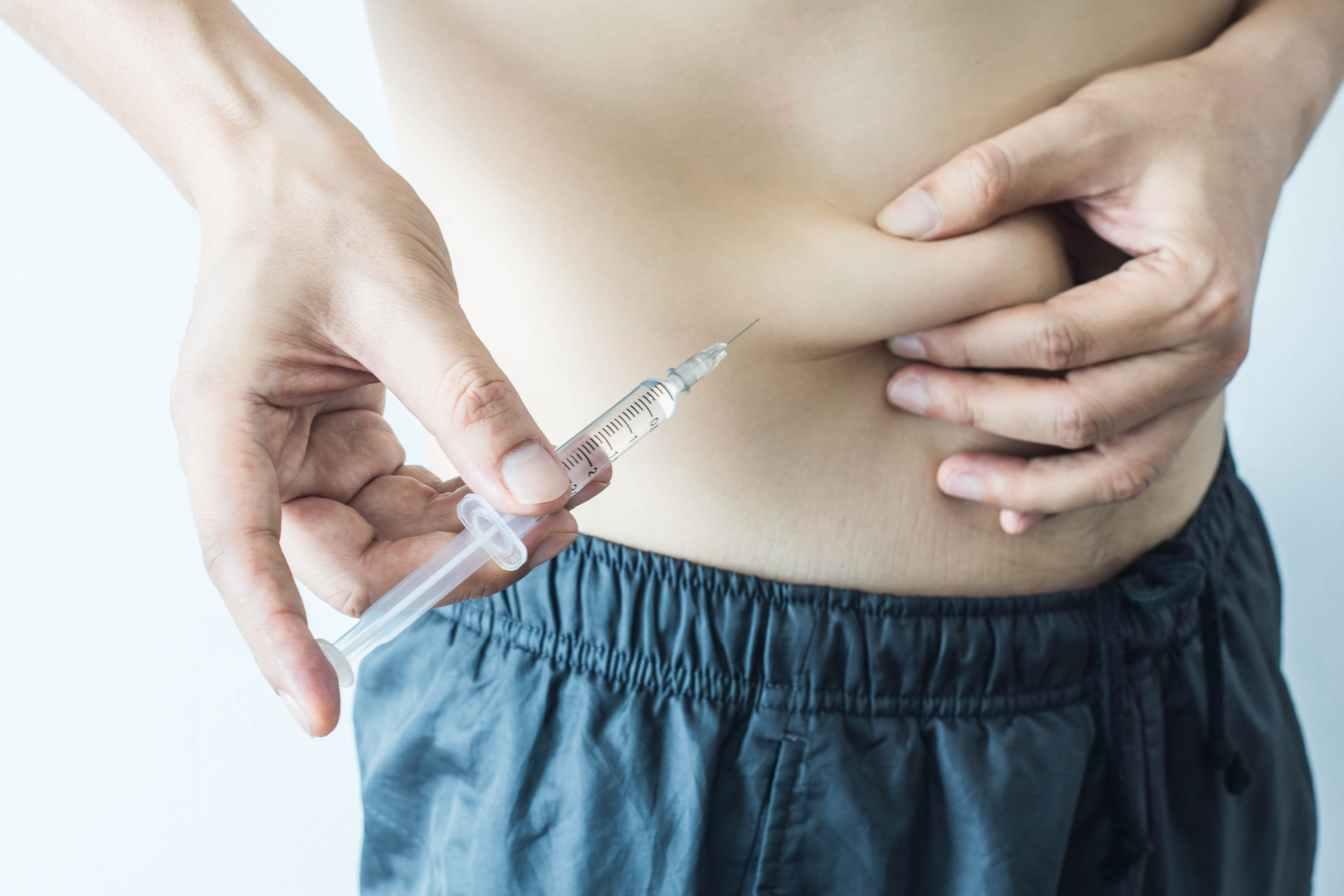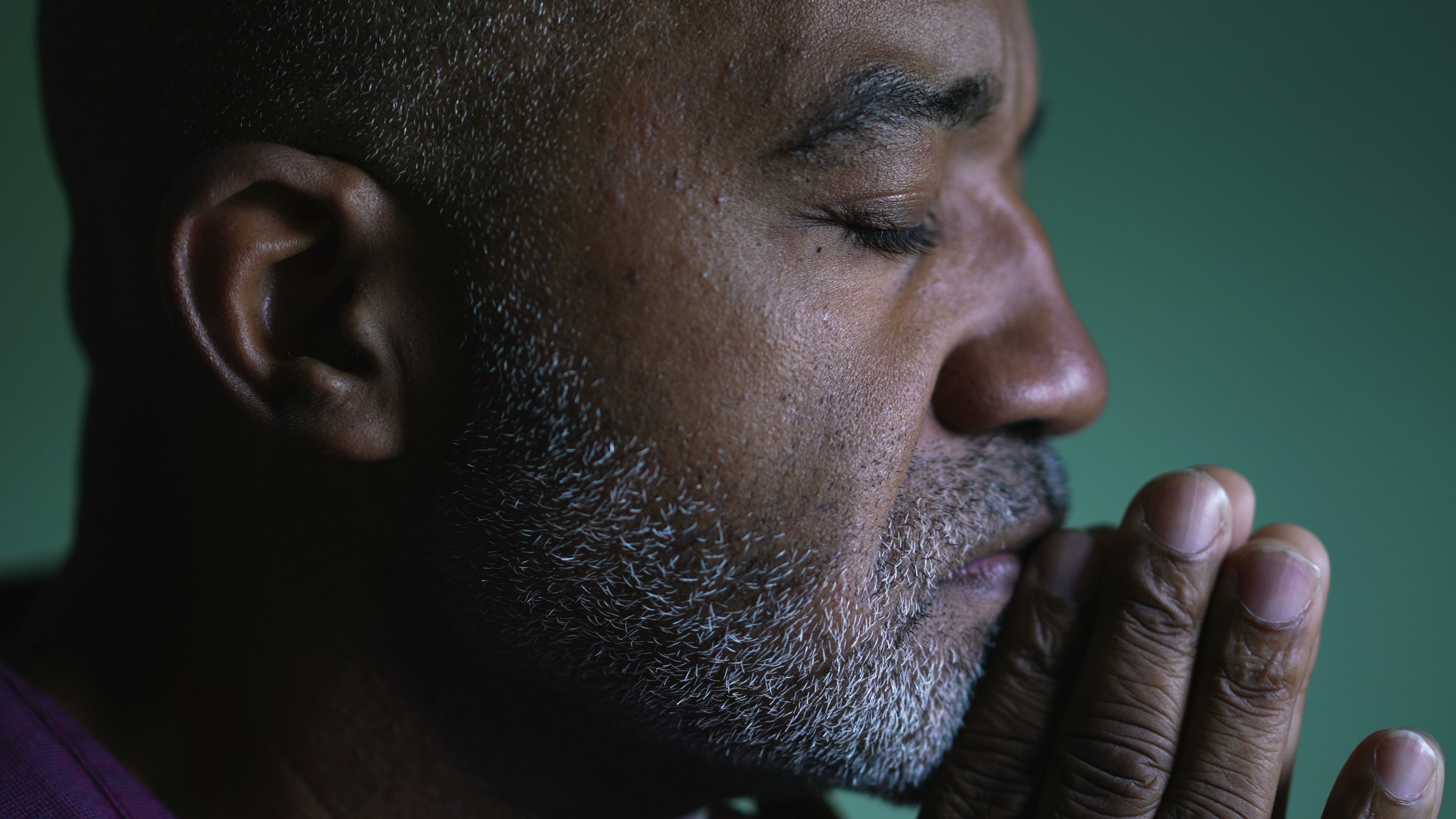

Dr Chris Airey
Overview
Testosterone is the principle male hormone and responsible for many aspects of male development. Optimal health and wellbeing depends on having the right balance of hormones, and this includes testosterone. Unfortunately, many men live with low testosterone without being aware of it, or without knowledge that the symptoms that they are experiencing are caused by depleted testosterone levels. Let’s take a look at how you can identify you are experiencing low testosterone levels, what causes it and what you can do to ensure that it’s not a problem for you now or in the future.

What is low testosterone?
Low testosterone, also known as hypogonadism, is a condition that occurs when your testicles don’t produce enough testosterone. Low testosterone is defined as being a level below 12 nmol/l but some patients may be treated below 15 nmol/l if they are appropriate. There are several reasons why someone can experience low testosterone levels – or T levels as they are sometimes called. The good news is that low testosterone can usually be treated with testosterone replacement therapy (TRT).
What does testosterone do?
Testosterone is the primary sex hormone in men and plays a number of important roles in male development as well as the day to day life as adult males. In male children, testosterone is responsible for the development of the sex organs, the appearance of facial and body hair, muscle mass and bone growth and strength. In adults, testosterone is essential for sperm production and a healthy, active libido.
Many people think that testosterone is only present in males, but it’s a crucial hormone in females too as it helps to support ovarian function, bone strength and a positive sex drive.
How common is low testosterone?
Low testosterone is more common than you might think. Testosterone production increases significantly, peaking around the age of 19/20 before it starts to decline at a rate of around 1% per year. It’s estimated that around 39% of men aged 45 and over can be classed as having low testosterone.
Signs and symptoms of low testosterone
Many men don’t realise that they are experiencing testosterone deficiency simply because they aren’t aware of the signs and symptoms associated with the condition. To help you know what to look out for, we’ve put together the list below.
In men
Men with low testosterone levels may experience some or all of the following symptoms:
- Reduced sex drive
- Loss of erectile function (the inability to get or maintain an erection)
- Loss of body/facial hair
- Loss of lean muscle mass
- Fatigue
- Weight gain/increased body fat
- Low mood or mood swings
- Anxiety and depression
In women
As we know, it’s not just men that have testosterone. Women need a certain amount of testosterone to keep them healthy. Without it, they may experience symptoms including but not limited to:
- Reduced sex drive
- Difficulty reaching orgasm
- Fatigue
- Poor concentration
- Muscle weakness
- Thinning hair
If you notice any of the symptoms listed above, we’d advise speaking to your doctor about arranging to get your testosterone levels checked.
Causes of low testosterone
There are primarily two reasons why low testosterone occurs. These can be divided into primary and secondary hypogonadism.
Primary hypogonadism
Primary hypogonadism is where low testosterone occurs due to a problem in the testicles. The most common reason for someone to experience primary hypogonadism is an underlying genetic disorder such as Klinefelter syndrome. Other common causes include undescended testicles, injury to the testicles, a mumps infection during childhood or previous cancer treatment.
Secondary hypogonadism
Secondary hypogonadism is caused by a problem in either the hypothalamus or pituitary glands which are responsible for signalling the testicles to produce testosterone. They do this by releasing follicle-stimulating hormone (FSH) and luteinising hormone (LH).
Diagnosing low testosterone
If you suspect that you may be suffering from low testosterone levels, you’ll need to obtain a diagnosis before you can explore any treatment options. Let’s look at some of the ways you can diagnose low testosterone.
Luteinizing Hormone (LH) and Follicle-Stimulating Hormone (FSH)
One of the easiest ways of determining the type of hypogonadism you have is by measuring the amount of LH and FSH in your body, which can be done with a blood test. Men with secondary hypogonadism have low levels of testosterone and normal to low levels of FSH and LH because of issues affecting their hypothalamus or pituitary glands, whereas men with primary hypogonadism have low testosterone levels and moderate to high FSH and LH levels.
Blood prolactin level
An effective way to diagnose testosterone deficiency in women is by measuring prolactin levels in your blood. Prolactin is a hormone made by the pituitary gland and particularly high levels can interfere with the production of testosterone, causing levels to drop. Prolactin levels can be measured with a simple blood test.
Blood haemoglobin
Studies have found that men with low testosterone are more likely to also have low levels of haemoglobin – the protein in red blood cells that is responsible for delivering oxygen to the tissues around the body. Low haemoglobin levels detected in a routine blood test can help to support a diagnosis of low testosterone.
Other tests
In addition to the tests listed above, your doctor may do a number of other things as part of the diagnostic process. These may include a physical exam to determine how much body hair you have, the health and appearance of your testes and scrotum and whether you have excess body fat or lost any obvious muscle mass. They may also ask you about your medical history, and the signs of low testosterone you’ve experienced. If your doctor believes that your symptoms may be caused by a pituitary tumour, you may be referred for an MRI scan or CT scan of your brain.
Treatment for low testosterone
If you are diagnosed with low testosterone, there is a treatment that can help to restore normal testosterone levels and alleviate your symptoms. It’s known as testosterone replacement therapy or TRT.
What is TRT?
Testosterone replacement therapy, or testosterone therapy, is an effective method to restore your testosterone levels that comes in a variety of forms including injections, pellets, patches and gels. By introducing artificial testosterone to your body, it’s possible to reverse some of the negative symptoms of low testosterone and see benefits including increased energy levels, stronger sex drive, increased sperm production (which is important for fertility), loss of body fat and increased muscle mass.

Side effects of TRT
Testosterone replacement therapy is generally considered to be very safe. However, as with any medication, there are some side effects that you should be aware of. These include, but aren’t limited to:
- Acne
- Disturbed breathing while sleeping (sleep apnea)
- Swollen breast tissue
- Swollen ankles
- High red blood cell count
- Higher risk of cardiovascular problems
- Growth of prostate cancer cells although prostate cancer is common in older men anyway, meaning the risk of this happening due to testosterone therapy is inconculsive
Prevention of low testosterone
While there’s not currently any way of preventing low testosterone caused by genetic conditions or damage to the testes or pituitary gland through illness or accident, research suggests that a healthy lifestyle could reduce your risk of needing hormone replacement therapy like TRT in the future.
Healthy diet and exercise
The most obvious way to improve your lifestyle is by following a healthy, balanced diet. Studies suggest that constantly overeating or dieting can be disruptive to testosterone levels and instead, it is far better to follow a nutrient-rich diet based primarily on whole foods and consists of lean proteins, good fats and complex carbohydrates can help optimise your hormone levels and boost your overall health.
Regular exercise is an important part of a healthy lifestyle too. Not only will doing regular exercise help keep your heart healthy and strong and reduce your risk of heart disease, low libido and erectile function problems, but certain types of training, such as resistance training and high intensity interval training (HIIT) have also been shown to boost short-term testosterone levels.
Keep stress under control
Many people are surprised to learn that stress can be a contributor to male hypogonadism too. That’s because sudden peaks in cortisol can quickly reduce testosterone levels. Stress can also affect your sleep and eating, and give you high blood pressure, putting you at greater risk of putting on weight and developing excess fat around your organs – something which could also affect your testosterone level.

Risks associated with low testosterone
Many men live with low blood testosterone for a long time before they realise that there is treatment that can counteract low testosterone symptoms. The trouble is that a lack of testosterone can lead to long term and potentially serious effects on the body. For example, low testosterone in men has been associated with poor bone density, which could make a condition called osteoporosis more likely.
Living with low testosterone for a long time can also affect sexual function, with many men suffering from a low sex drive and erectile dysfunction, which can be extremely frustrating and affect your self esteem.
Poor muscle strength, decreased energy and mood swings are all common symptoms of low testosterone that has persisted for months if not years.
FAQs about low testosterone
Still got questions about low testosterone, testosterone replacement therapy or what steps you can take to prevent a negative effect on your own testosterone production? We’ve answered a few commonly asked questions below.
Can you prevent low testosterone naturally?
As we know, healthy lifestyle choices are one of the best ways of reducing your risk of experiencing testosterone deficiency as you get older. Losing weight can also cut your risk of developing other health problems such as diabetes (uncontrolled high blood sugar), high blood pressure, high cholesterol and heart disease.
Some experts also suggest that having more sex, as well as general physical activity can boost hormone production to reach normal levels.
What is the best form of treatment for replacing testosterone?
Testosterone replacement therapy comes in many forms, and which is right for you is usually down to personal preference. Some men prefer testosterone injections since they can be long-acting and only need to be administered a few times each year, while others prefer testosterone gel because it’s non-invasive and can be applied at home.
How long can you be on testosterone replacement therapy?
There is no real limit as to how long you can take supplemental testosterone and many men stay on it for years and for as long as they reap the benefits. However, we recommend that you speak to your doctor regularly so that they can monitor your treatment.
Am I too old for testosterone replacement therapy?
There is no upper age limit for testosterone therapy but you will be assessed on a case by case basis to determine your suitability for treatment.
Key takeaways…
Declining testosterone levels are very normal once you reach a certain age, Fortunately, there are lots of things you can do to prevent or prolong male hypogonadism so that you can limit its effects. Understanding the symptoms and signs of low testosterone will help you know when to seek testosterone therapy in the future.










